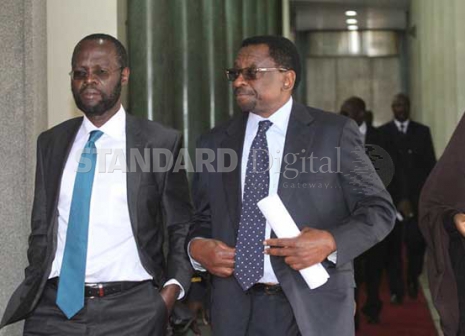
Senate yesterday failed to live up to its billing after the members retreated to their political coalitions when they met to discuss the contentious Election Amendment Laws.
The House was so divided that when the chairman of the joint Legal Affairs and Human Rights Committee and ICT, Amos Wako rose to address members, he revealed that CORD and Jubilee senators had decided to vote along party lines. Consequently, the report he presented had two sides, one passed by majority of Jubilee members and an annexures by CORD members who had opposed the amendments.